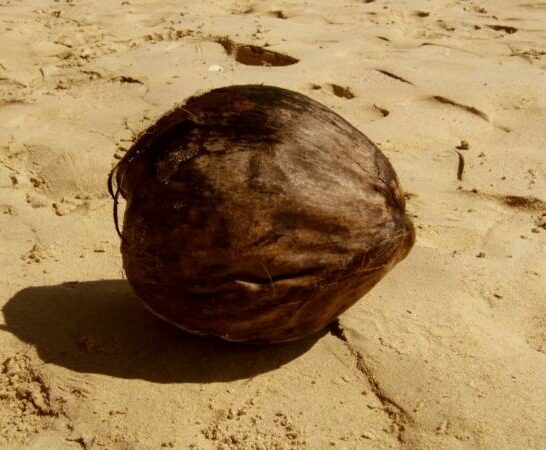Can You Drink Brown Coconut Water? When it comes to cooking and trying new things, food safety is incredibly important to consider at every turn.
With a product like coconut water, most people think that it’s straightforward, and as long as there’s water in the coconut, it’s drinkable.
This assumption could not be further from the truth.
If a certain food, or component of that food, is unsafe, it’s listed on the label.
So, when shopping for coconuts, you will be able to see which ones contain water that is safe to consume.
Brown coconuts do not contain water that is suitable for human consumption.
So, if you’re wondering if can you drink brown coconut water, the answer, in general, is no.
Can You Drink Brown Coconut Water?
You cannot drink brown coconut water. Brown coconuts have been on the tree longer, and therefore, have had longer to ferment and sour. While the water from white coconuts is drinkable and sterile, the water from brown coconuts has likely gone sour due to the fermentation process. In addition, the water inside brown coconuts is likely to be no longer sterile and may not be sterile any longer.
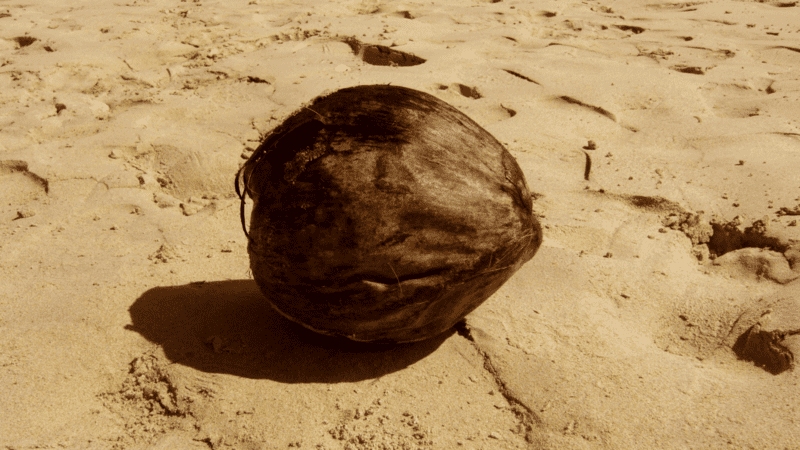
What Types of Coconut Water to Drink
Brown coconuts have a short lifespan, which means that the fruit cannot come in contact with oxygen for too long, or else the fermentation process will begin.
Once that happens, bacteria are attracted quickly and digestive complications will arise after it’s ingested.
Brown coconuts generally have a warning on them that advises not to drink the juice, but this can’t be said for all supermarkets, farmers’ markets, or coconuts that are growing wild.
However, while the juice is certain to cause digestive problems, the brown coconut flesh is typically the kind that we consume.
From coconut flakes to chunks of coconut in meals, brown coconuts have a more floral and fragrant flesh than white coconuts.
Coconut water is low in citric acid.
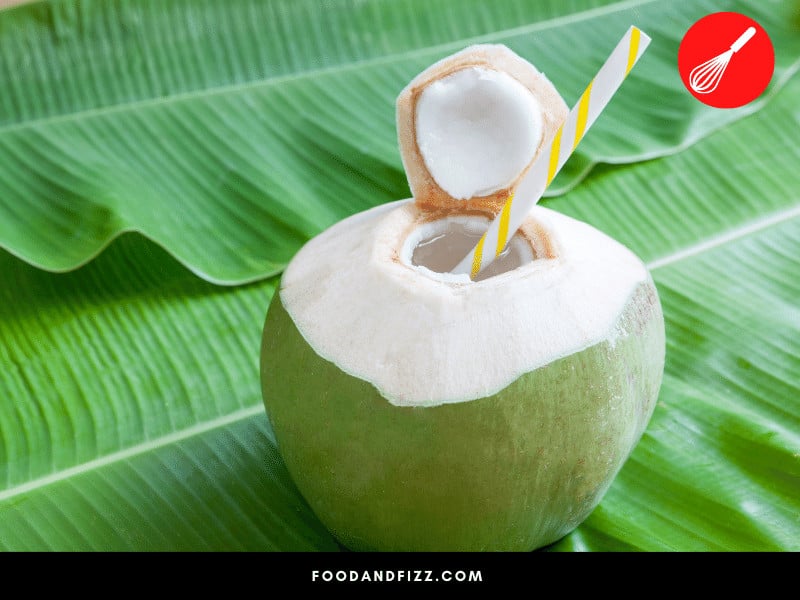
White Coconuts
White coconuts have less than desirable, gelatinous meat inside. It doesn’t have much flavor, especially when compared to brown coconuts.
However, the water inside is delicious and nutritious and commonly bottled up and sold on supermarket shelves.
You might also see larger resorts serving coconut water directly out of coconuts.
Even if your container is a brown coconut, it’s likely the water came from a young, white coconut.
Green Coconuts
Green coconuts contain plenty of water as they are in the early stages of maturation and the water has not yet turned into coconut meat.
Though water from white coconuts is used often, green coconuts have an abundance of coconut water and it’s hydrating and delicious.
Green coconut water is rich in nutrients and antioxidants and it’s really good for you overall.
They have some compounds that might even aid in fighting cellular damage or heart disease.
The younger the coconut, typically the better the water.
Where to Use Coconut Water
Coconut water has plenty of places for use, from drinking directly from the can to utilizing it in baking or cooking recipes.
It’s a wonderful and healthy replacement in many cases and always gives a fantastic flavorful addition to almost any dish.
Coconut water is extremely popular among athletes and those who like to work out regularly because it provides incredible amounts of hydration.
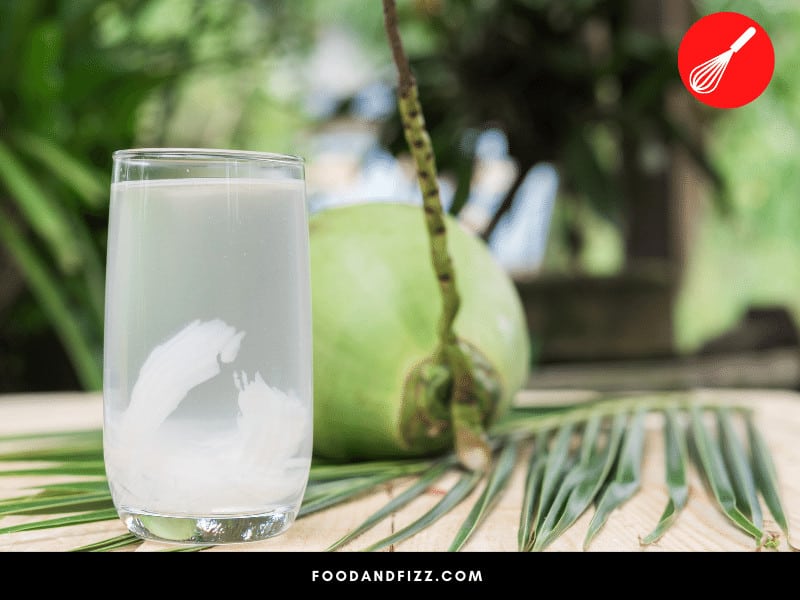
Cooking with Coconut Water
There are recipes online and in books that revolve solely around the use of coconut meat and water.
For centuries, coconuts and coconut water have been a massive part of the cuisine in South America, Asia, and Africa.
Though we’ve been cooking with them for decades in the United States, their popularity is somewhat recent compared to other areas in the world.
Ingredients like coconut milk and coconut water make for delicious sauces or smoothies.
Not to mention, coconut meat is a superb addition to almost any meal.
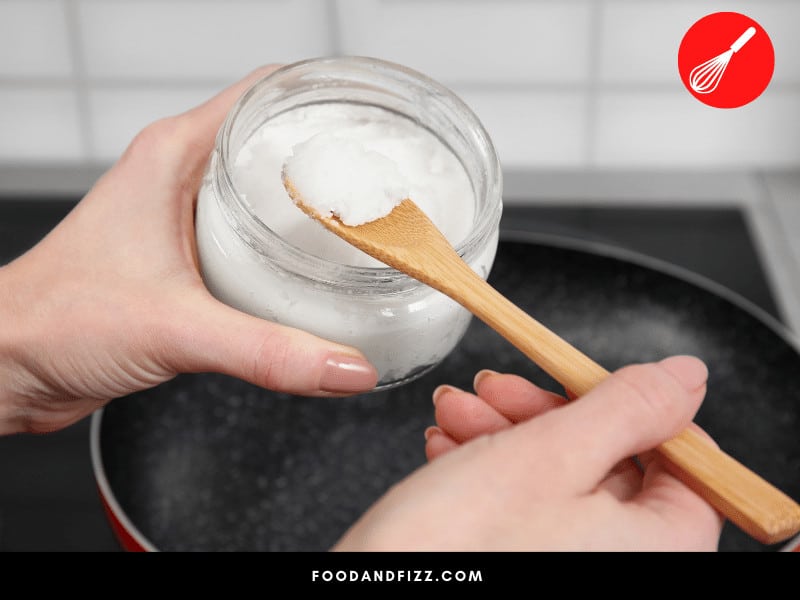
Baking with Coconut Water
The options are limitless when it comes to coconut water and baking.
Any recipe that uses water can be substituted with coconut water, adding a dose of health and flavor.
Baking is exceptionally great for utilizing coconut water because the flavor often meshes well with the rest of the ingredients.
No matter what you choose to do with your coconut water, be it fresh or canned, make sure that you’re using coconut water from young coconuts, and avoid the water that comes in fresh, mature, brown coconuts.
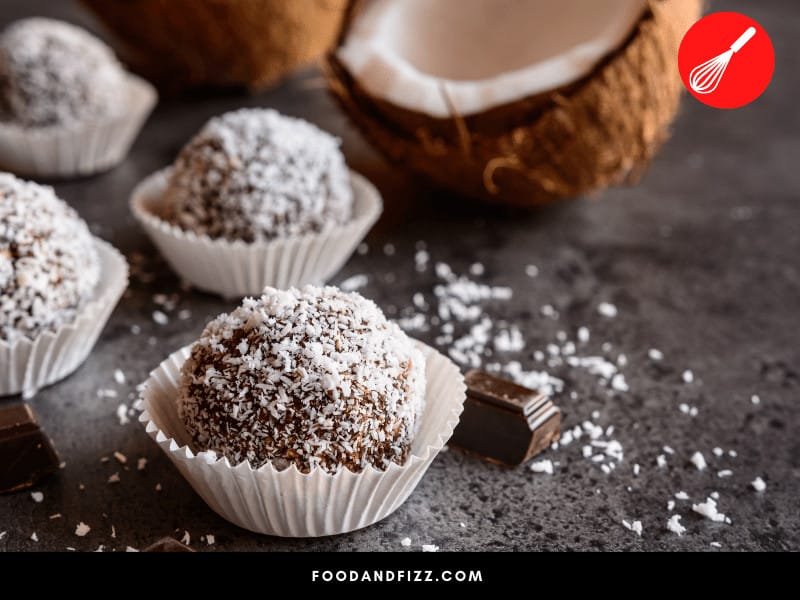
Frequently Asked Questions About Can You Drink Brown Coconut Water
Can I drink brown coconut water?
Brown coconuts are very mature, and therefore contain more meat than water. There is water inside, but it ferments very quickly when it meets oxygen. This fermentation attracts bacteria, and it’s likely that drinking water from brown coconuts will result in digestive issues.
What type of coconut water should I drink?
Drink bottled and canned coconut water that comes on supermarket shelves. If you prefer to get coconut water from a fresh coconut, you’ll want to make it a green or white coconut because they are plentiful in fresh, hydrating, healthy, coconut water.
Can You Drink Brown Coconut Water
It is best to avoid water that comes from a brown coconut. The coconut water that you’ll find on the shelves at the grocery store is typically from green or white coconuts. Drinking brown coconut water will cause intestinal distress, and there is more meat than water in brown coconuts anyhow.

